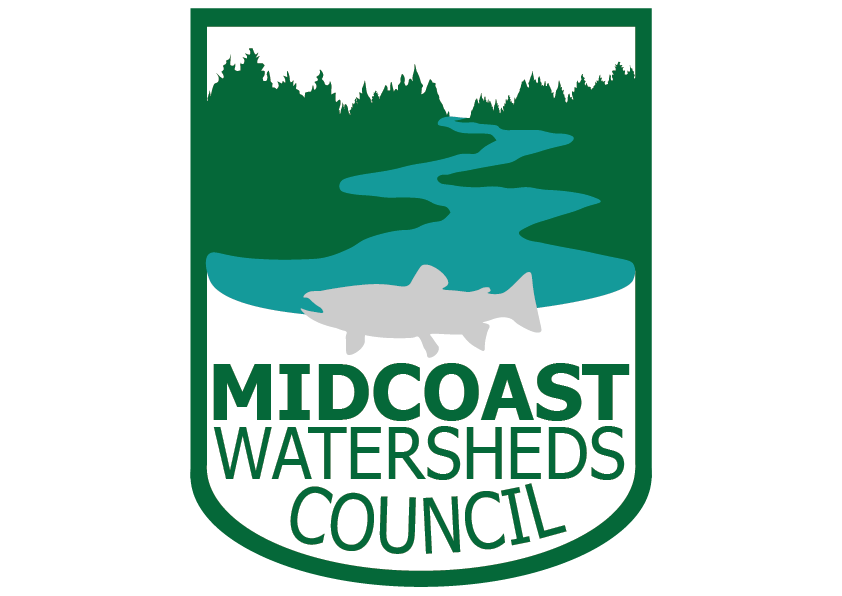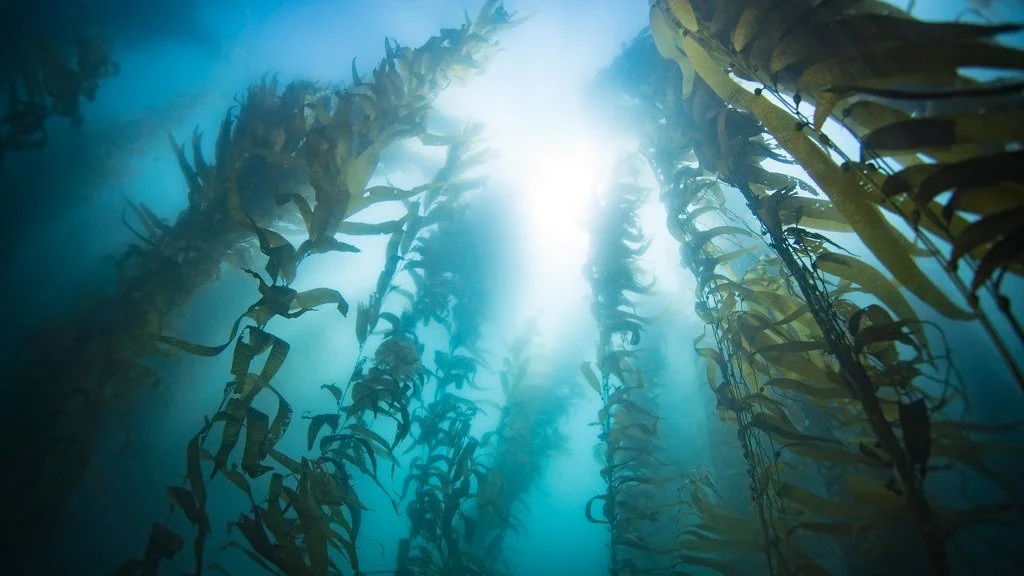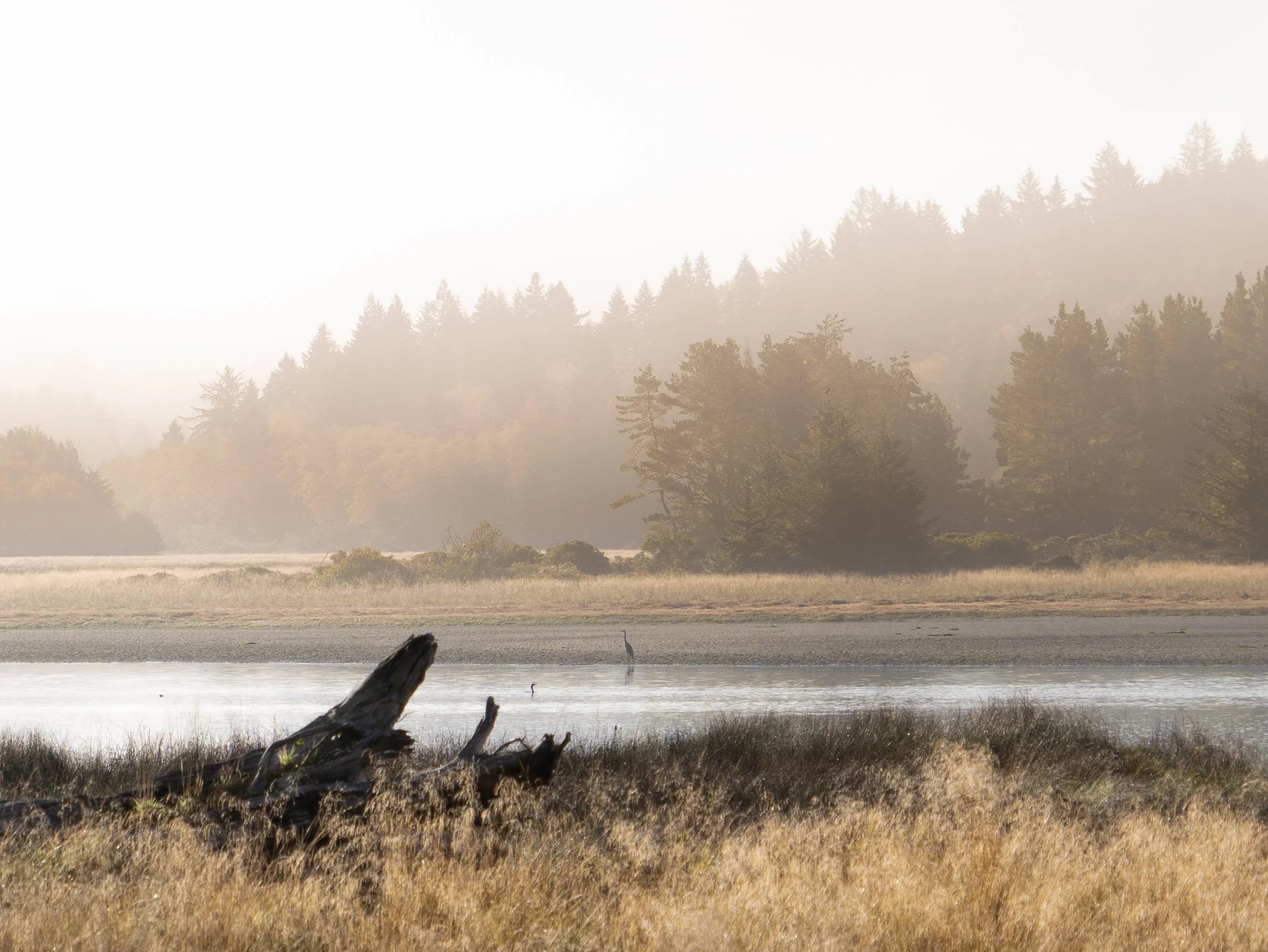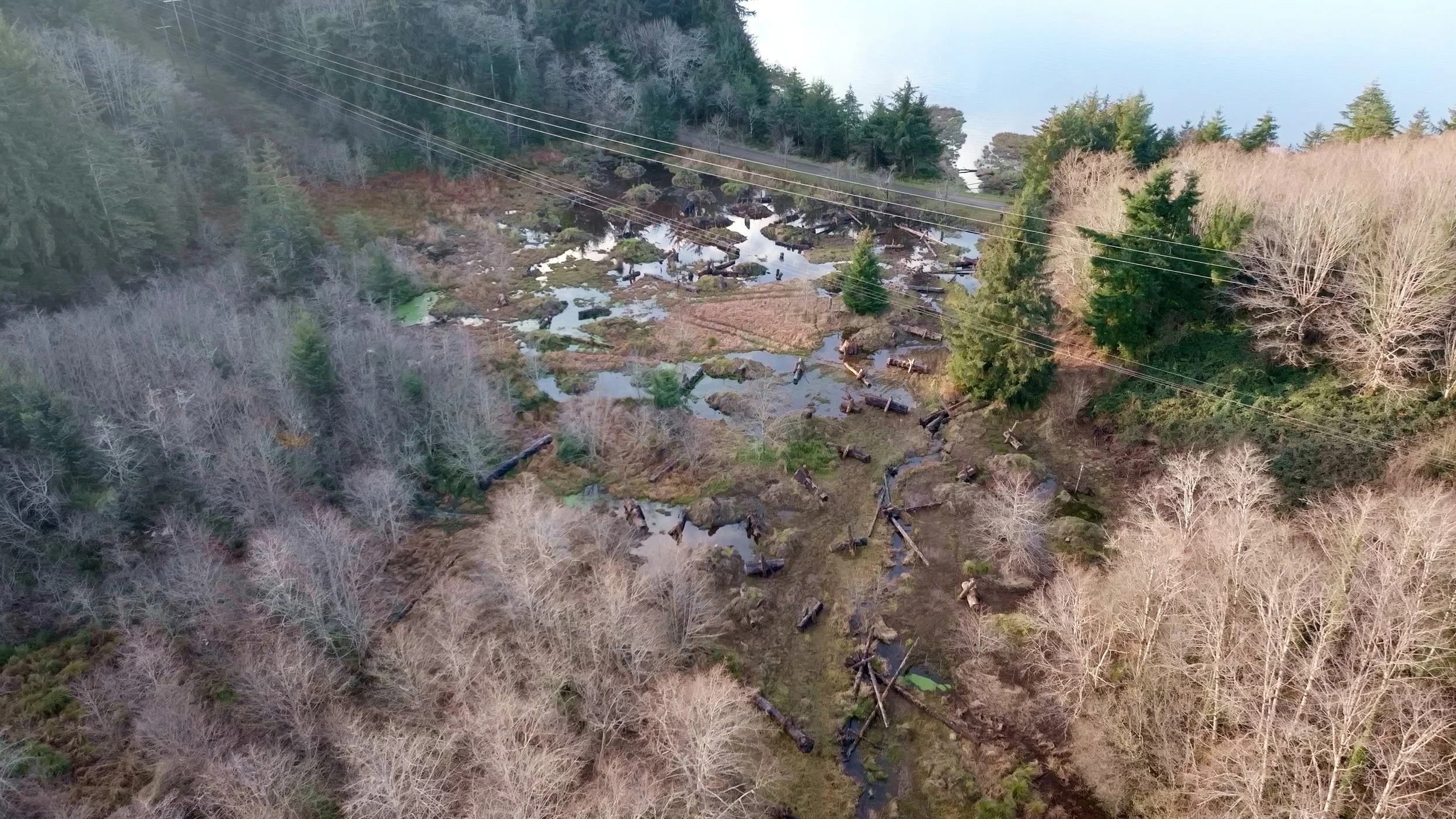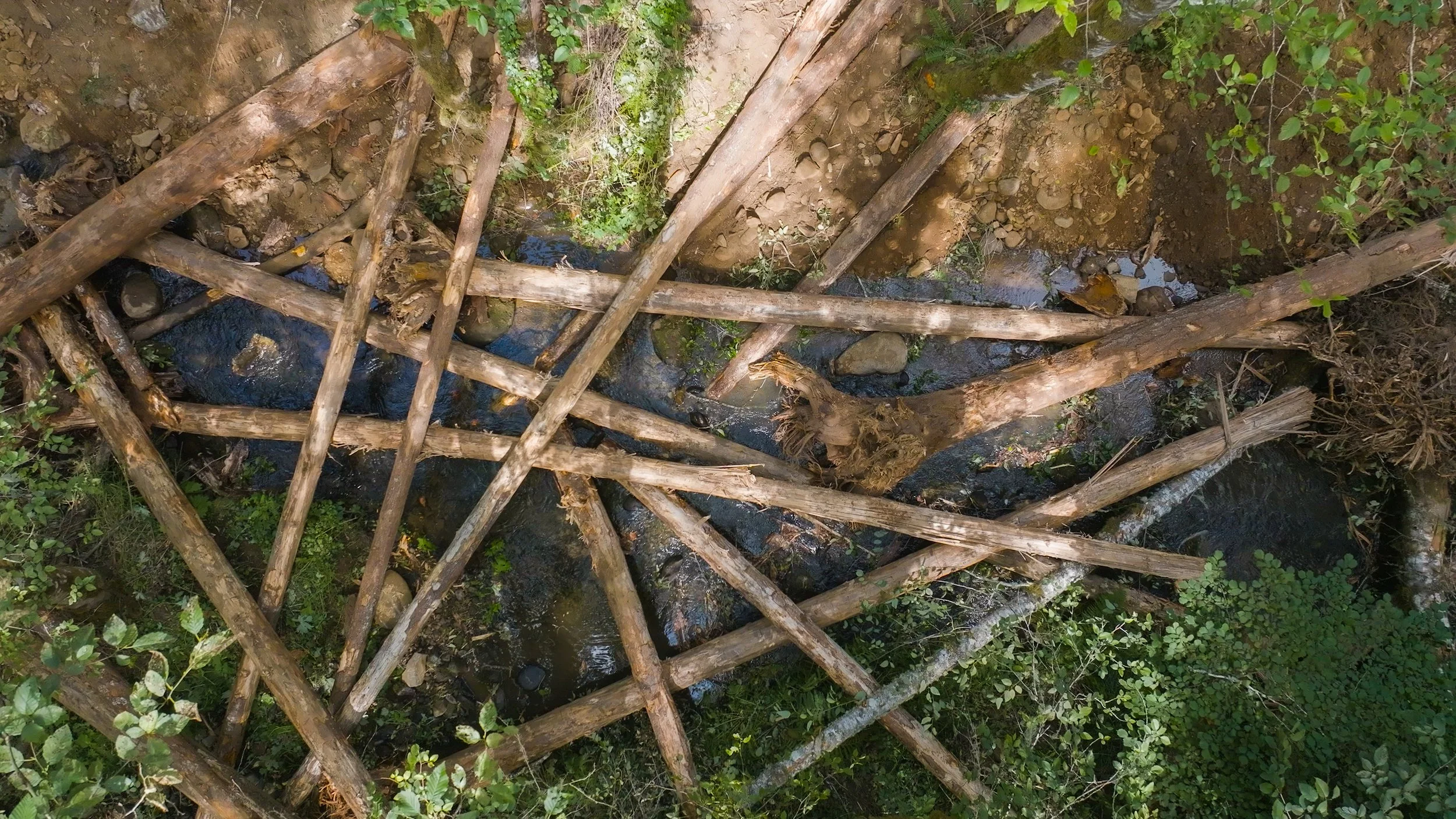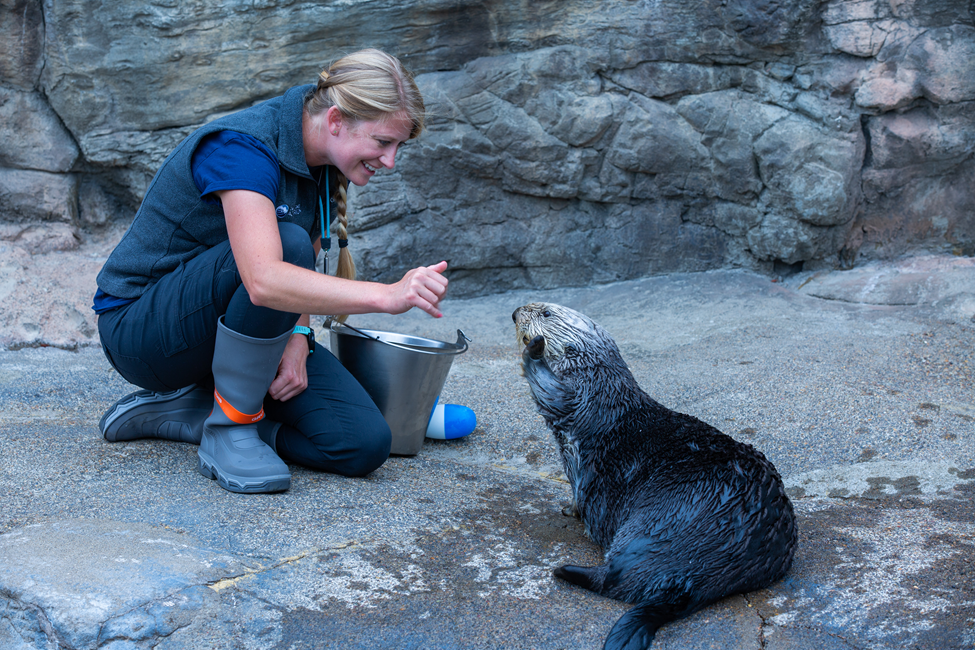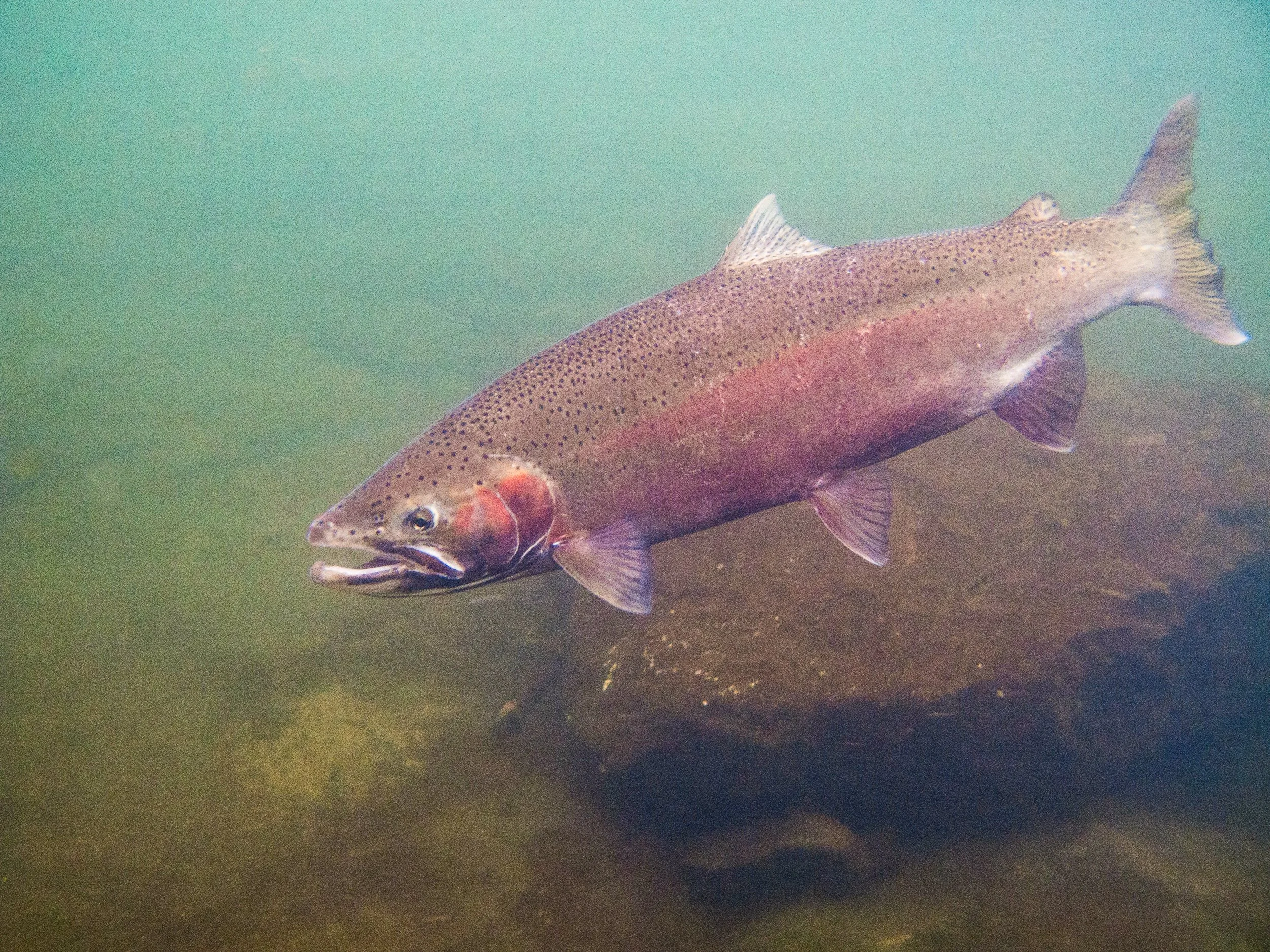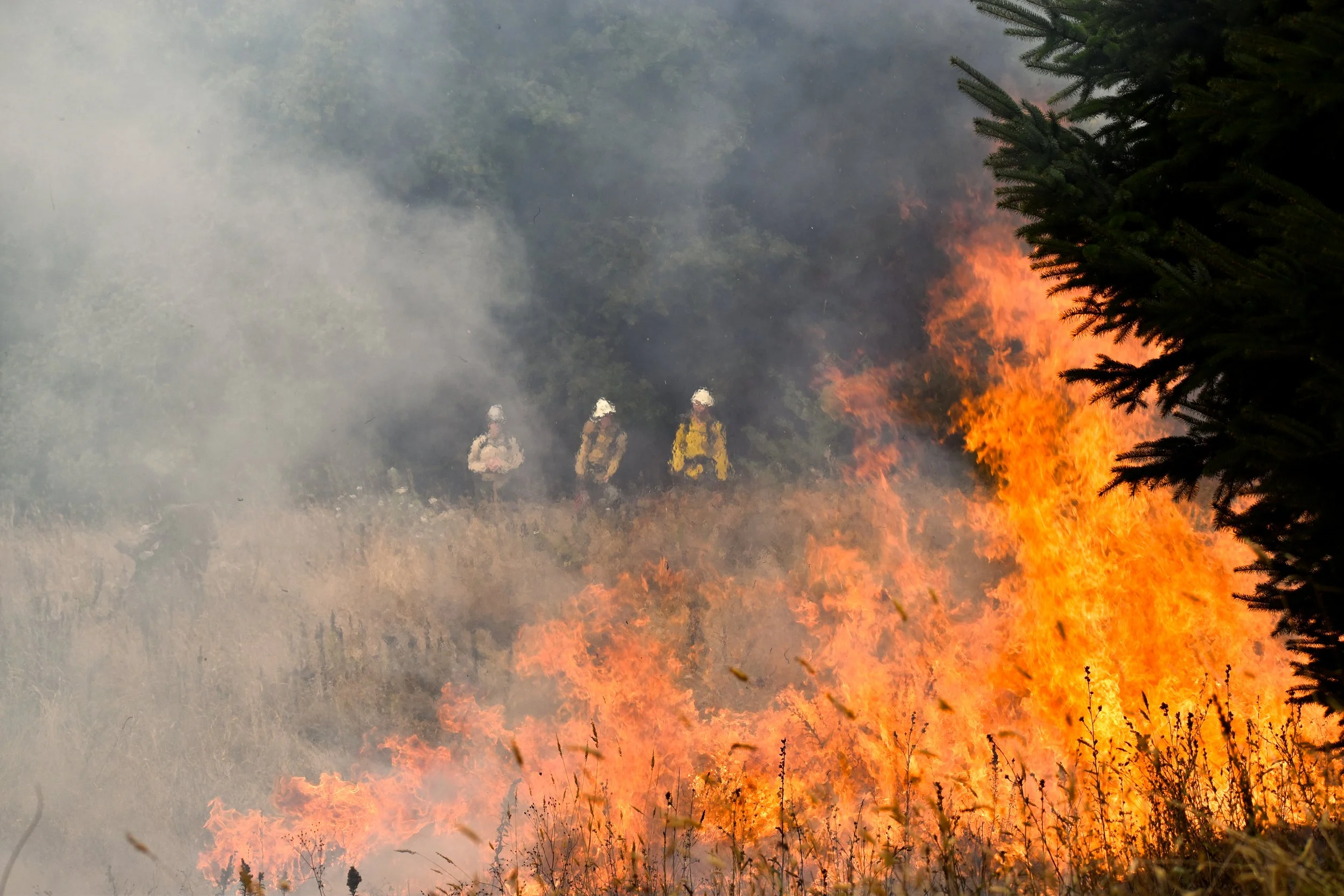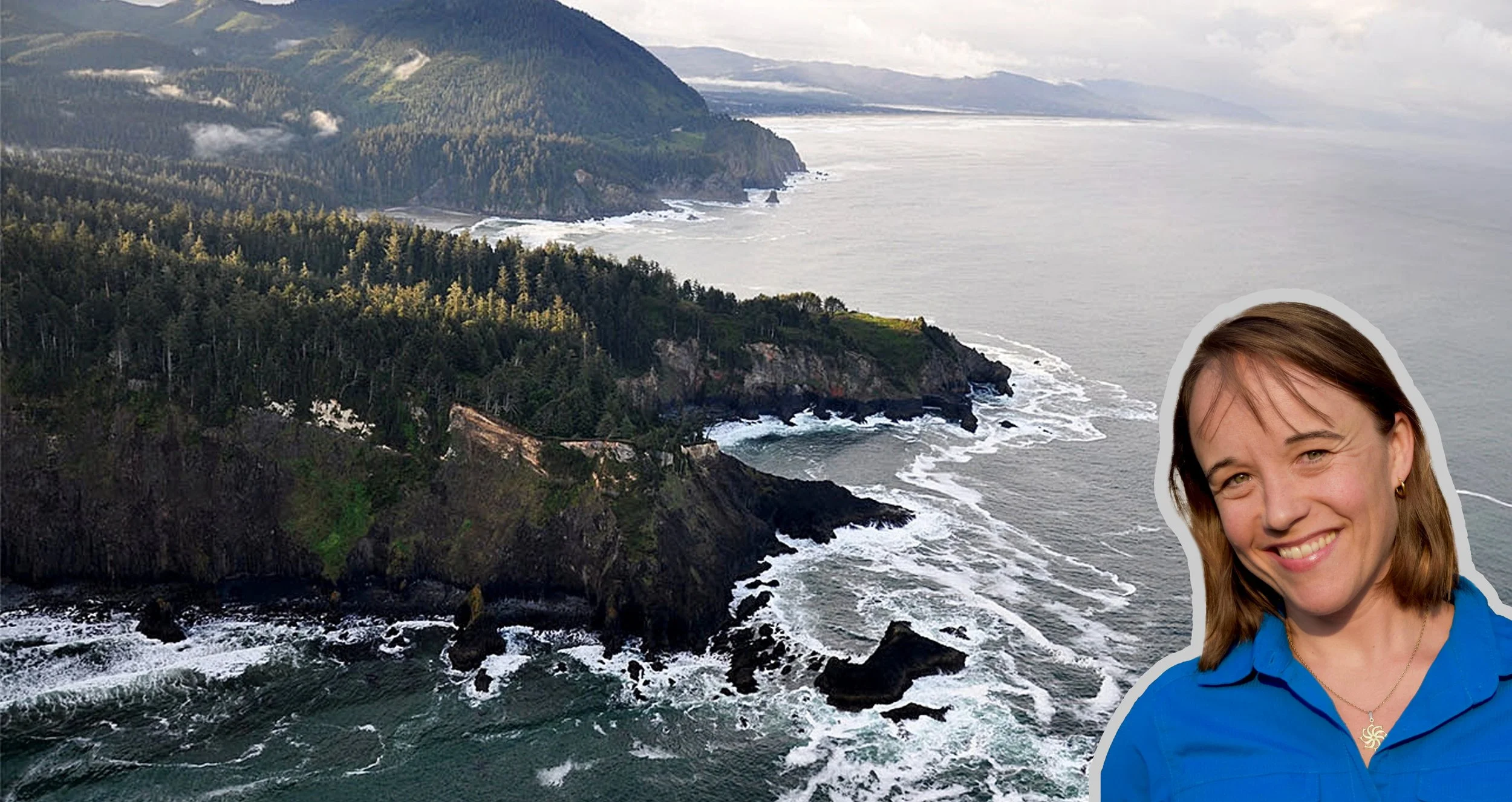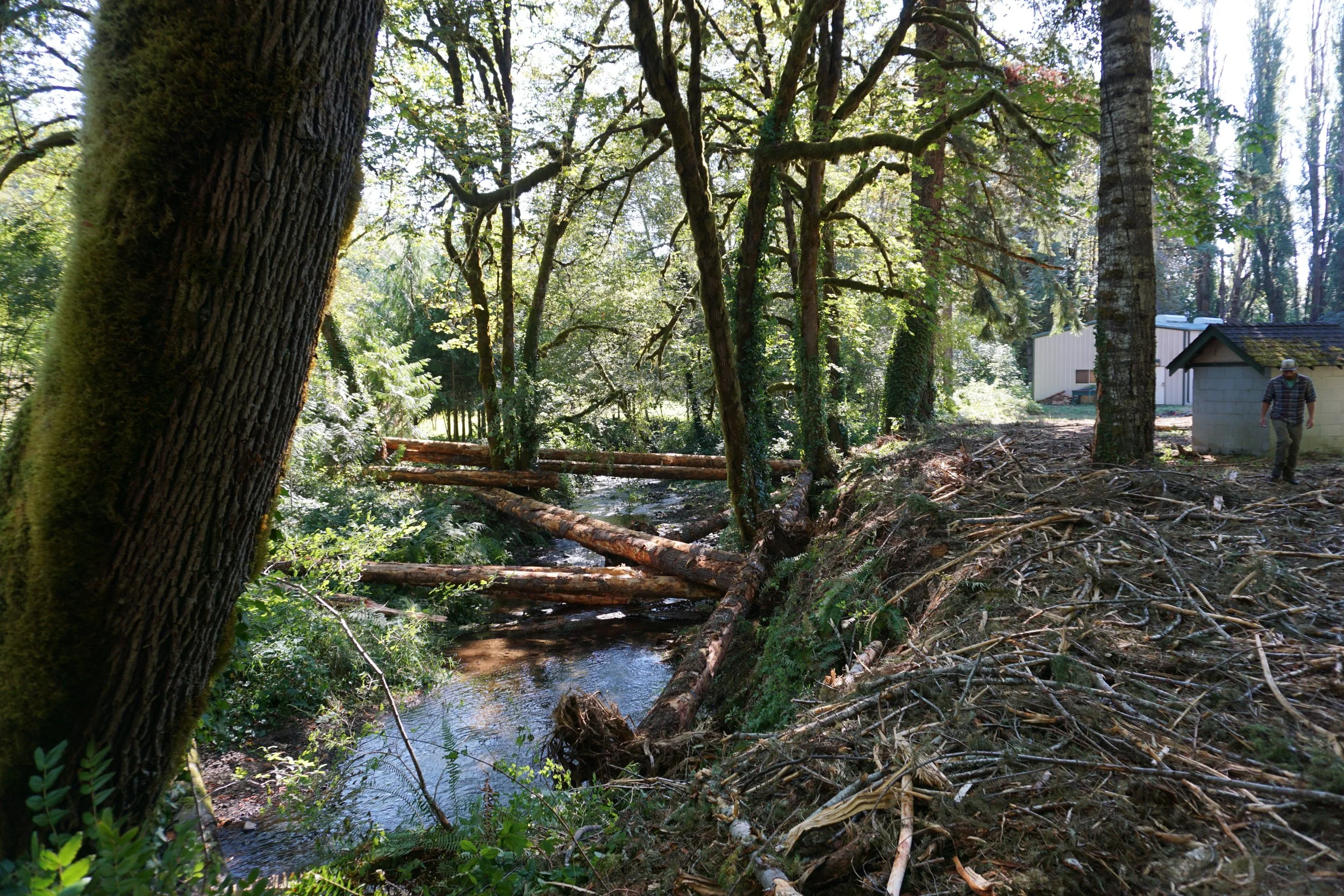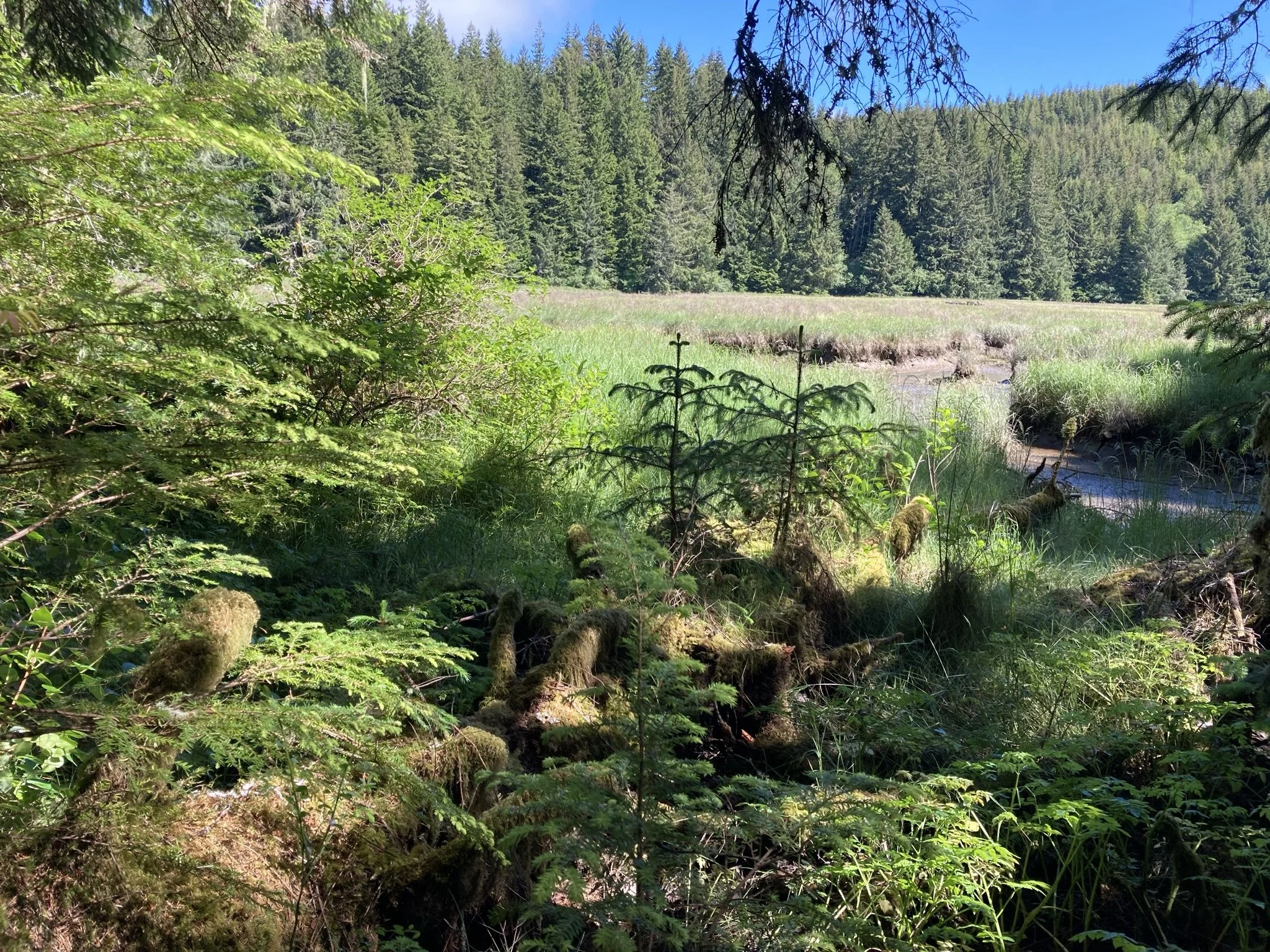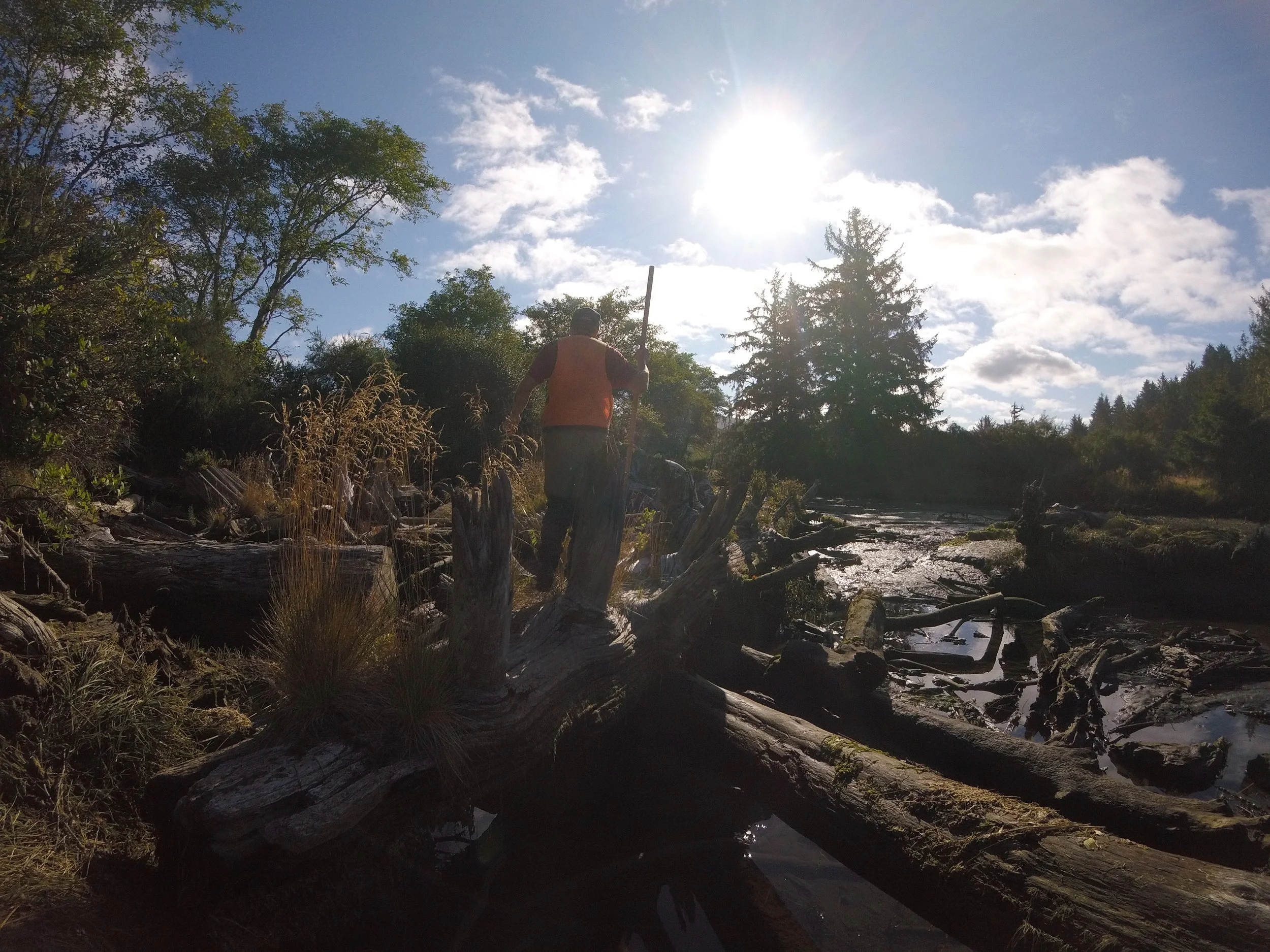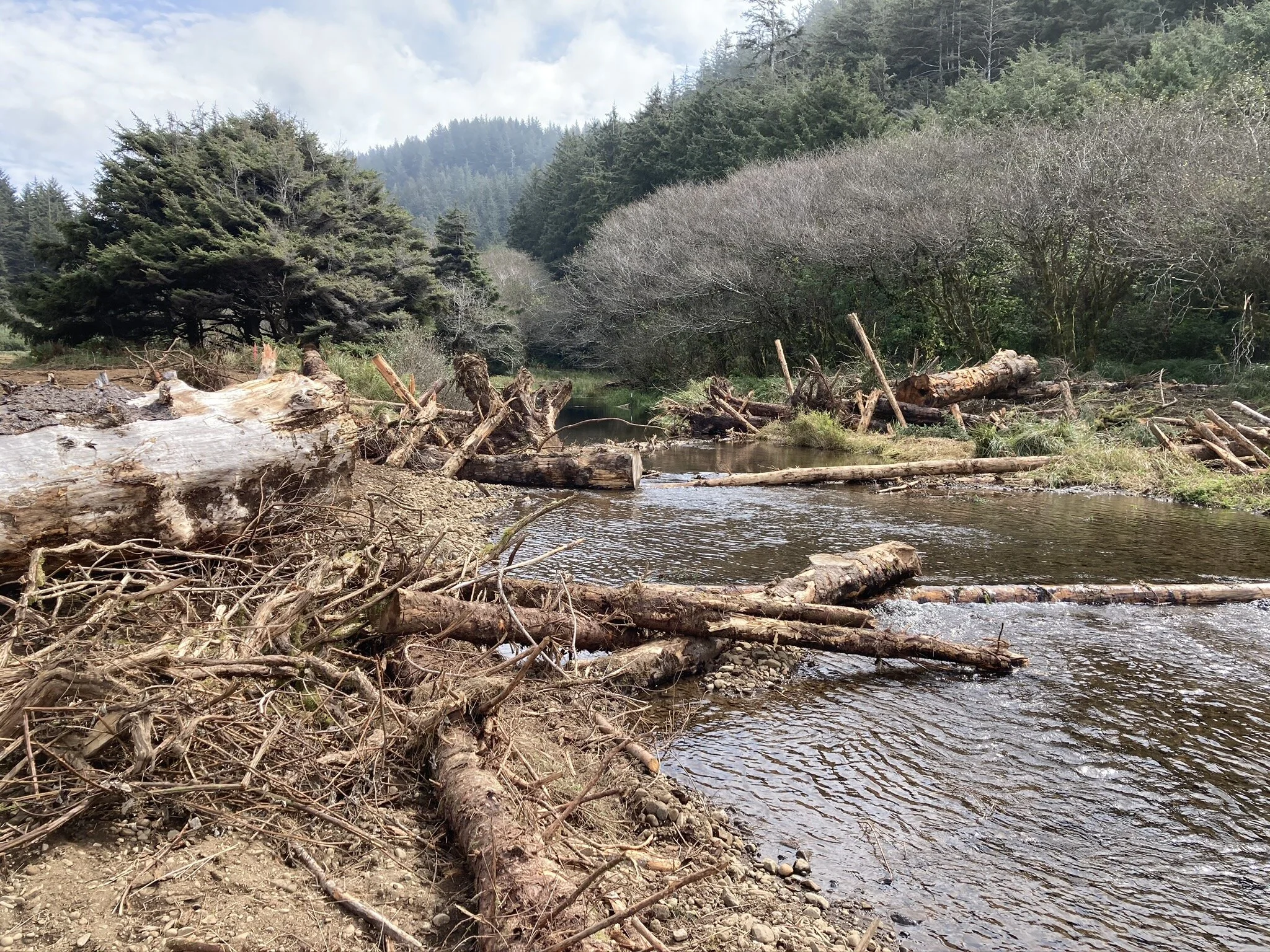A place to learn and connect
On the first Thursday of every month, the MidCoast Watersheds Council hosts guest speakers at our community meetings. Below are the past presentations that have been shared with us.
To see who will be speaking at our next meeting, be sure to check our Events page. Get notified of new meetings being posted by subscribing to our YouTube page.
2022
June
For species like Pacific salmonids who use the entire watershed, we would expect different effects in freshwater, the estuary, and the ocean. What we don’t know is whether our native species have enough adaptive resilience to survive the potentially confounding effects of a changing climate across these varied environments. In this talk, Dr. Flitcroft discussed the development and adaptation of Pacific salmon to Northwest stream environments, some of the changes we may expect to see in the future, and how scientists answer these questions.
May
Dr. Kristen Dybala is an ecologist at Point Blue Conservation Science where she leads research to inform conservation strategies. Her research has focused on riparian and wetland ecosystems in California's Central Valley, examining bird population and community responses to habitat restoration, climate-change impacts, and trade-offs with carbon sequestration. She is currently developing a scientific protocol for quantifying the benefits of riparian restoration projects and a framework for projecting the benefits and trade-offs of land management decisions.
april
What did the tidal wetlands of the Yaquina Bay Estuary look like 200 years ago? What might they look like a hundred years in the future? The estuary has always been dynamic, but this period has seen especially broad changes in these wetlands that are related to human impacts. In this presentation, we traveled through time so you can visualize the estuary's past wetland habitats, how they have changed, and their potential future -- and we talked about what these changes mean to people and wildlife that live here and use the estuary.
Laura directs the Estuary Technical Group at the Institute for Applied Ecology, a nonprofit in Corvallis, Oregon. She enjoys developing and delivering solid science to support estuary restoration and conservation by coastal communities. Over the past 20 years, she's led field studies in nearly all of Oregon's major estuaries, including effectiveness monitoring at Oregon's largest tidal wetland restoration projects. From these projects, she and her colleagues have made exciting discoveries about how our estuaries work, leading to better mapping of estuary habitats and better data on valued estuary functions like carbon sequestration and fish habitat. Currently, Laura is collaborating with regional and national teams to apply this new knowledge and help improve estuary management across the U.S. Laura has worked with MidCoast Watersheds Council in the past, and was a lead researcher on the Landward Migration Zones study.
March
The livelihoods of tens of thousands of Oregonians and countless species of wildlife depend on the forests of Oregon, so the industry is constantly looking for new ways to ensure sustainable futures for both. Kirk Hanson of Northwest Natural Resource Group (NNRG) discusses principles of Ecological Forestry that his organization has been developing to help forests in the Pacific Northwest adapt to a changing climate. By highlighting the myriad forests NNRG manages across the region, Kirk shares examples of forest management strategies that provide alternatives to conventional industrial plantation forestry that has been the standard in the Northwest for decades. He’s worked on behalf of small woodland owners for more than 25 years, bringing a passion for ecological forestry and simplified hands-on management practices that allows forest owners to take a direct role in the stewardship of their own land. As a member of a three-generation family-owned forest, Kirk understands the issues and opportunities facing small woodland owners and relishes developing new strategies for optimizing the economic and ecological potential of their forests. Kirk worked for six years with the Washington DNR’s Small Forest Landowner Office before joining NNRG in 2006. He also teaches ecological forestry as an adjunct instructor at the Evergreen State College. Kirk’s favorite way to spend time in his forest is felling trees and pruning.
February
Eelgrass, like kelp, is an aquatic plant that provides crucial food and habitat for fish and other aquatic animals. Because of its importance to the ecology of Oregon's coast, eelgrass and seagrasses have been scientifically researched for decades. In February 2022, we heard from Jim Kaldy, an ecologist with the Environmental Protection Agency (EPA). The research he has been involved in includes species interactions with eelgrass beds, seagrass bed mapping, and human effects on eelgrass beds. He discusses what they have found, as well as the history and possible future of eelgrass beds in Yaquina Bay.
2021
December
Estuaries, the places where freshwater rivers meet the ocean, are vital and dynamic habitats. The unique mixture of water and high productivity make estuaries an essential part of many fish life cycles. They are not only federally designated as Essential Fish Habitat, they’re a Habitat Area of Particular Concern (HAPC). Estuaries are a major focus of conservation and restoration done by MCWC and our partners. This community meeting heard from OSU researcher Scott Heppell about his research on fish habitat in estuaries and how they are changing. He is an Associate Professor in the Department of Fisheries and Wildlife at Oregon State University who has done research all around the world, including the Mediterranean, Japan, and Alaska. His interests include the ecology and conservation of fishes, particularly how physiology, behavior, and life history traits affect the interactions between fish populations, their respective fisheries, and the environment.
November
Oregon's kelp forests are vital habitat for an amazing variety of marine species that sustain life and livelihoods on the Oregon coast. Changing ocean conditions and unchecked sea urchin populations have thrown the ecosystem that supports these highly productive forests out of balance, but a highly motivated group of researchers and community members on the Oregon coast is taking action to better understand and save Oregon's kelp forests. In our November community meeting, we heard from Tom Calvanese, the coordinator of the Oregon Kelp Alliance (ORKA). ORKA aims to promote the health of Oregon's kelp forests through monitoring and researching conditions in kelp forest ecosystems, reducing urchin density in key areas to promote kelp forest regeneration, and engaging communities that rely on these systems.
OCTOBER
In 2004, the Hatfield Marine Science Center's (HMSC) Visitors Center, which receives about 150,000 visitors each year, became a laboratory for studying free-choice learning (FCL). In this presentation, Dr. Shawn Rowe who started the FCL Lab discusses what we’ve learned from the 16 years of work here in Newport as well as how it has sparked a host of other research programs internationally. Dr. Rowe also covered how the things they’ve learned can help us be more effective communicators (and learners) about climate change and building resilient coastal communities worldwide.
September
Ben Hayes from Springboard Forestry, who has helped the City of Astoria implement their innovative approach to watershed protection. Ben has a strong focus on conservation, drinking water, and finance. We also received an update on active local efforts in Yachats from John Theilacker. John is well versed in the combined efforts of Yachats, Waldport, Southwest Lincoln PUD, and the U.S. Forest Service to manage and restore their combined watersheds and is happy to share this information with our central coast community. https://springboardforestry.com/ http://www.midcoastwatersheds.org/
August
Aaron Groth works with OSU Extension Services as the Regional Fire Specialist for the coast. Debbie Pickering, the Oregon Coast Ecologist from The Nature Conservancy, joined him to discuss local fire management practices on the Oregon Coast with a special emphasis on the Cascade Head Biosphere Reserve.
June
Author Kristen Ohlson gave a wonderful presentation about the intricate relationship between bacteria, soil, humans, and society. You can learn about her book “The Soil Will Save Us” and her other writings at her website: http://www.kristinohlson.com/
MAY
The guest presentation for our May meeting was entitled “Bring Back the Pollinators!” and was delivered by Matthew Shephard, Director of Communications & Outreach for The Xerces Society. Matthew gave a wonderful presentation, filled with good information on how to help your local pollinator populations, as well as a lot of great imagery.
We were also joined by some of our local pollinator players - Maxine Centala, of Concerned Citizens for Clean Air, and Micheal Cavenaugh and Anita Albrecht from the City of Newport - who updated us on what is happening locally to conserve and protect pollinators and how you can get involved in those actions. To help with these ongoing efforts you can contact Maxine and Anita by clicking on their names.
Learn about all this and more by watching the recording of the meeting HERE.
APRIL
Dr. Kellie Carim, an Aquatic Research Biologist with a joint position at the University of Montana and the US. Forest Service National Genomics Center for Wildlife and Fish Conservation, delivered an amazing presentation on environmental DNA (eDNA) and Pacific lamprey. One of the tools Kellie mentions is the eDNA Atlas, which allows you to see the location and results of various eDNA sampling efforts accress the country. Watch the presentation to learn about these cryptic creatures and how eDNA is being utilized to better understand their distribution and is even helping in some conservation efforts. Thanks again Kellie!
Click HERE to see the presentation.
Image compliments of FISHBIO
MARCH
This month we were joined by John Goodell and Peter Hatch of the Elakha Alliance who gave an excellent guest presentation: Oregon's Lost Sea Otters: Restoring a Cultural Heritage and Ecological Keystone. Thanks again John and Peter!
We learned a great deal about the valuable role these charismatic critters play in the coastal marine ecosystem, their cultural significance, and what’s being done to try to bring them back to Oregon, and much more.
You can watch the recording of that presentation HERE or below.
JANUARY
For our first presentation of the new year our Council Coordinator, Evan Hayduk, gave an in-depth and informative talk about the other big restoration project we implemented in 2020 - the Yaquina Tidal Wetland Restoration Project. Not only will you learn a lot about tidal wetlands, what it takes to restore them, and how we made that happen at this site, you will also see some great photos and imagery of the project site, restoration in action, and what the site looks like when the river is at flood stage! We hope you enjoy the talk and if you have questions or comments you can leave us message through our Contact Us page.
Click here to see the presentation.
https://drive.google.com/file/d/12N-V99vHD6SFE63TGQvl7BW-BwfRhT6y/view?usp=sharing
2020
DECEMBER
MCWC tried our hand at our first virtual community meeting and to kick us off in the new format, our Council Coordinator, Evan Hayduk, gave a great presentation on the floodplain and instream restoration work that was recently done on Big Creek (South of Yachats). Unfortunately technology did not work out in our favor this time and our attempt to record the presentation was not successful. However, the link below will give you access to all of the slides Evan presented. Although you will not get a lot of the great information he shared verbally, these slides do paint a pretty amazing portrait of the project in and of themselves. Enjoy!
Big Creek Floodplain Restoration
https://drive.google.com/file/d/1tqJwWcUSktXRqQJ8VLVvLZ0Bibo7KoJW/view?usp=sharing
April
Restoration Program Assistant, Ari Blatt, joined the virtual Earth Day Celebration sponsored by Citizens’ Climate Lobby – Newport group and 350 Oregon Central Coast to discuss MCWC's history, highlight two major restoration projects being implemented, and let viewers know how they can get involved in our work.
March
The tidal wetland theme continued in our third rendition of the Carbon Speaker Series, with Dr. J. Boone Kauffman, professor of Ecosystems Ecology within Oregon State University’s Department of Fisheries, Wildlife, and Conservation Sciences. Building upon the previous speaker’s, new information was presented on tidal wetland functions and loss both on the broad scale globally, as well as the more local scale within our backyard in the Pacific Northwest. You can view a live recording of the entire presentation below.
February
In part 2 of the Carbon Speaker Series, Craig Cornu of the Pacific Northwest Blue Carbon Working Group took us down to the intertidal zone to discuss how tidal wetlands can do their part to mitigate the effects of climate change through their ability to store more carbon per acre than any other ecosystem type. Watch the video below for a live recording of his whole presentation, including the Q & A session.
January
As the kickoff to the Carbon Speaker Series, “From Ridgetop to Reef”, Dr. Dominick DellaSala of the Geos Institute joined us to touch on how vital our coastal rainforests are to global climate regulation. His talk also discussed the importance of conserving unlogged forests, and how our working forests too can be managed for additional carbon benefits. Watch the video below to hear his whole presentation, including the Q & A session.
2019
Orcas of the Oregon Coast. Colleen weiler. Whale and Dolphin Conservation.
Wave energy on the Oregon Coast. Burke Hales. PacWave.
Mid-Coast Fish District Fisheries, Stock Status, and Restoration. Paul Olmstead. ODFW.
Ocean acidification and hypoxia. Caren Braby. ODFW.
Integrated Stormwater Management. Mike Broili.
C2C Trail. Jim Golden.
Monitoring Oregon’s Coastal Salmon Populations. Mike Lance & Erik Suring. ODFW.
Developing a Dissolved Oxygen TMDL for the Siletz River. Ryan Shojinaga. ODEQ.
Using Bioblitzes to Better Understand Our World. Ian Throckmorton.
2018
The Blob, El Ninos, La Ninas, and their biological impacts across the North Pacific. Laurie Weitkamp. NOAA.
Invasive Plants: threats, challenges, and solutions. Jim Nechols.
Restoration BMP’s and Oregon’s Native Freshwater Mussles. Emilie Blevins, The Xerces Society for Invertebrate Conservation.
Sea Otters and Oregon’s Nearshore. Robert Bailey. The Elakha Alliance.
15 Years of Winter steelhead. Eric Brown. ODFW.
2017
What happens to Oregon’s tidal wetlands with sea level rise? Fran Recht. PSMFC.
Early Seral Biodiversity and Ecosystem Services in Managed Forest Landscapes. Matthew Betts. OSU.
The Siletz Tribe and Climate Change: Adapting and Monitoring Shifting Coastal Resources. Laura Brown. CTSI.
The Mill Creek Study: Monitoring the Effects of Large Wood on Stream Habitat and Salmon Populations. Chris Lorion. ODFW.
Conservation Planning for 3 lampreys of coastal Oregon. Benjamin Clemens. ODFW.
National Flood Insurance Program and Endangered Species Act. Matt Spangler. Oregon Department of Land Conservation.
Surfrider Foundation Newport Chapter: Who We Are and Blue Water Task Force. Vince Pappalardo. Newport Surfrider Chapter.
2016
Survival in times of change: climate and salmon of the Oregon Coast Range. Rebecca Flitcroft. USFS.
2015
Predation on trout: implications for restoration. Brooke Penaluna. USFS.
Native Freshwater Mussels of the Pacific Northwest: Lifestyles of the benthic and sedentary. Shelly Miller. Pacific Northwest Freshwater Mussel Workgroup.
2014
Identifying, Protecting, and Restoring fine-scale thermal heterogeneity in Oregon coastal streams. Joe Ebersole. US EPA.
